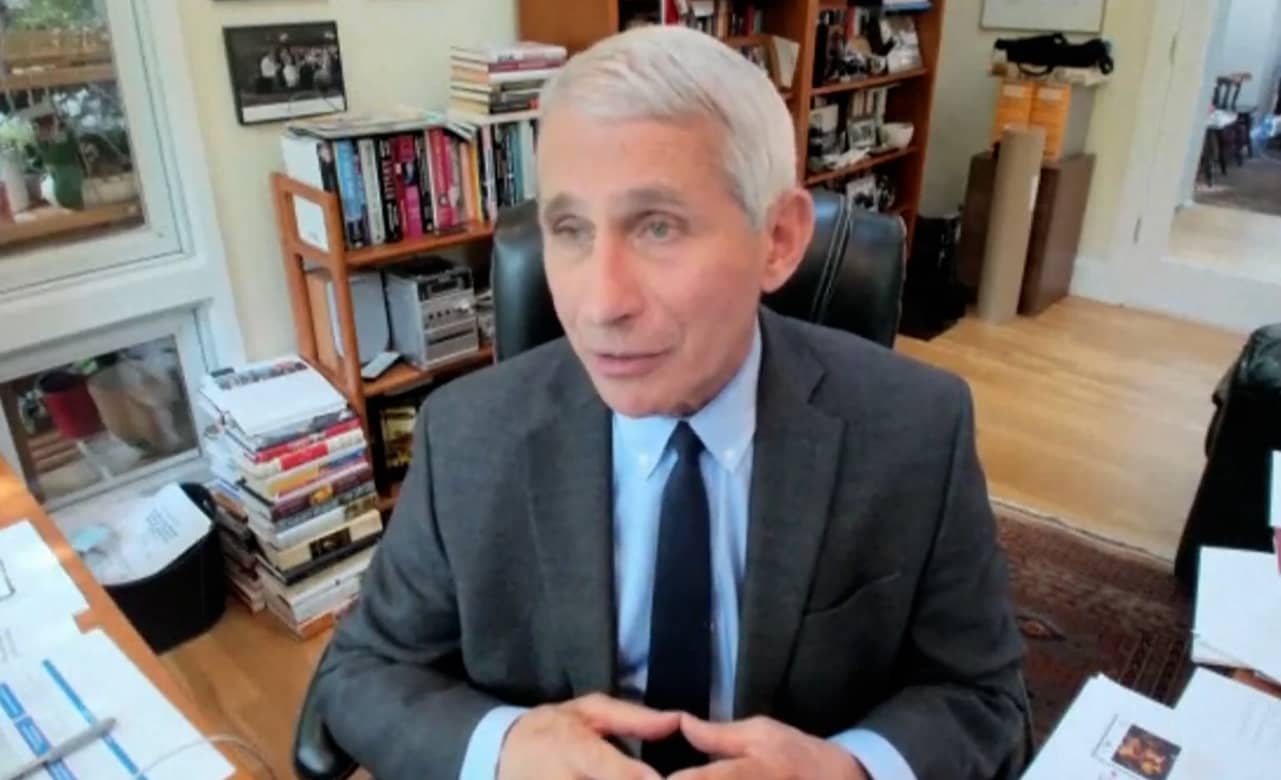Republican Sen. Rand Paul challenged one of the Trump administration’s top health advisors on the coronavirus pandemic, questioning why the U.S. shouldn’t reopen schools in the fall when relatively few children die from Covid-19.
“Shouldn’t we at least be discussing what the mortality of children is?” Paul asked White House coronavirus task force advisor Dr. Anthony Fauci during a Senate hearing Tuesday on reopening the economy. Paul then noted that the mortality rate of coronavirus patients age 0 to 18 “approaches zero” in New York where 12 children have died, according to the state health department. The notion of not sending students back to school in the fall is “really ridiculous,” he said.
At one point, Fauci countered: “I think we better be careful that we’re not cavalier, in thinking that children are completely immune to the deleterious effects.”
Paul’s challenge encapsulates the debate between elected officials eager to open up businesses and willing to accept the risk that more people will die, and public health experts committed to lowering infection rates and keeping the public as safe as possible.
“People are hurting and we’re destroying our country,” Paul told reporters outside the hearing room. “We’ve got to open up business we got to let people vote, and we’re not going to live in a perfect world without infectious disease, we’re still going to have it, but we got to open the economy and that’s the number one message I have.”
The Kentucky senator, an opthamologist, told Fauci he didn’t believe there would be a surge in cases if schools opened, which is not what public health experts say. Paul dismissed predictive models of the virus. “The history of this, when we look back, will be of wrong prediction after wrong prediction after wrong prediction,” Paul said.
Paul then targeted Fauci personally: “As much as I respect you Dr. Fauci, I don’t think you’re the end-all, I don’t think you’re the one person that gets to make the decision. We can listen to your advice. But there are people on the other side saying there won’t be a surge and we can safely open the economy.”
Fauci asked for a chance to respond, and pushed back.
“I never made myself out to be the end-all,” he said. “I’m a scientist, a physician, and a public health official. I give advice according to the best scientific evidence.”
He said other people have advised the U.S. of the “need to get the country back open again economically. I don’t give advice about economic things, I don’t give advice about anything other than public health.”
Fauci then turned Paul’s own phrasing on him. “You used the word we should be ‘humble’ about what we don’t know. I think that falls under the fact that we don’t know everything about this virus, and we really had better be very careful, particularly when it comes to children,” Fauci said.
“Because the more and more we learn, we’re seeing things about what this virus can do that we didn’t see from the studies in China or in Europe. For example, right now children presenting with Covid-19 who actually have a very strange inflammatory syndrome, very similar to Kawasaki syndrome,” Fauci said.
Officials in New York and elsewhere have announced they’re investigating rare cases of inflammatory conditions in young children that appear to be associated with Covid-19. The World Health Organization previously said the symptoms appear to be similar to toxic shock syndrome and Kawasaki disease.
Toxic shock syndrome is a rare, life-threatening condition caused by bacteria getting into the body and releasing harmful toxins. Symptoms include a high temperature, a sunburn-like rash and flu-like symptoms such as a headache and sore throat.
Kawasaki disease causes swelling of the heart’s blood vessels and mainly affects children under age 5, according to U.K. health officials. Symptoms include a rash, swollen glands in the neck, dry or cracked lips and red fingers or toes. The Mayo Clinic says it is usually treatable.
Children generally do not develop severe disease from the coronavirus, according to the Centers for Disease Control and Prevention. But the CDC noted last month that “severe outcomes have been reported in children, including three deaths.”
“You’re right in the numbers, that children in general do much, much better than adults and the elderly and particularly those with underlying conditions,” Fauci concluded. “But I am very careful, and hopefully humble, in knowing that I don’t know everything about this disease. And that’s why I’m reserved in making broad predictions.”
Scientists are learning everyday about the nature of the virus and how it attacks the human body as well as different demographics of people. The World Health Organization has said the virus, which was originally believed to primarily attack the respiratory system, has also been found to cause circulatory, digestive and neurological problems.
